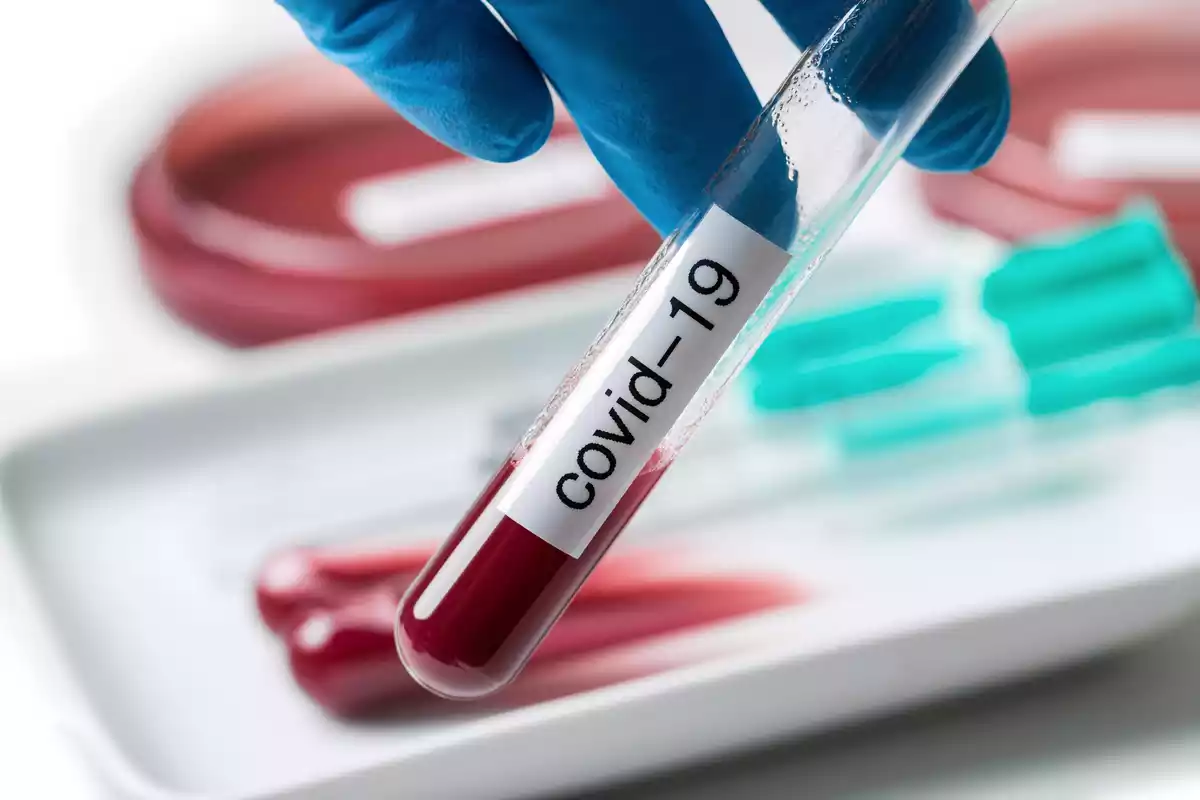
Our daily lives have changed a lot since coronavirus came into our lives. Things are not like they were a little over a year ago, as restrictions and measures to curb the pandemic have changed our lifestyle completely.
During these months of battle against coronavirus, scientists from all over the world have been busy discovering everything possible (and more) about this virus.
In fact, the coronavirus we know about today is not the only one that has existed and, thanks to this, the pharmaceutical company Adimab, which is based in New Hampshire (USA) has discovered what could be the 'weak point' of coronavirus, as reported in the journal 'Science'.
The weak point of Covid-19
A team led by Laura Walker, from the biopharmaceutical company Adimab (Lebanon, USA), has created an antibody that could be effective in preventing COVID-19 infection. According to the article, this antibody has already been tested in mice and has obtained good results.
To make this news possible, the scientists have managed to isolate antibodies from immune memory B cells from a person who was infected in 2003 by a SARS-Cov infection (i.e. from the coronavirus family that is affecting us today).
Thus, the group of scientists was able to change the structure of the antibodies and designed one called ADG-2. This antibody, which the researchers have called the 'Achilles' heel', was able to stop the infection in mice, and was also effective in preventing them from catching other respiratory diseases.
The ADG-2 antibody has been shown to be effective in laboratory tests. In addition to stopping infection in mice that were not yet infected, the ADG-2 antibody was able to lower the viral load of mice that were already infected with COVID-19.
This type of antibody is called 'broadly neutralizing' (bnAbs) and, according to the U.S. Food and Drug Administration federal agency, "it is a promising opportunity for a therapy aimed at preventing or mitigating future SARS-related outbreaks".
Possible treatment?
As can be read in the article published by 'Science', "ADG-2 represents a promising candidate for the prevention and treatment not only for COVID-19 but also for future respiratory diseases caused by this family of viruses".
Furthermore, they indicate that "it is an attractive target for vaccine design that aims to create similar broadly protective antibodies".
The possible weakness of the variants
A preprint published on the bioRxiv.org website has concluded that the new variants of SARS-CoV-2, which are more infectious, could also be easier to attack with drugs thanks to an enzyme called protease (a protein-breaking enzyme).
As the preprint explains, each viral particle contains up to 80 protein spicules, i.e. protrusions that give it the appearance of a crown, which the virus uses to enter cells.
For the virus to complete the infection of a cell, its spicules must somehow be activated. Thus, if more spicules are activated, the possibility of being neutralized by antibodies also increases.
According to the research, these proteases must be found in the areas where the virus enters, the nostrils. However, for the moment, this preprint has not been confirmed or accepted for publication.
Israel has an inhaler that 'can cure the virus'
Moreover, there is a piece of news that is going around the world, the one about the Israeli inhalerwhich, as indicated by its creator Nadir Arber to the media 'El Telégrafo', is capable of curing coronavirus in a matter of 5 days.
The Ichilov hospital, located in Tel Aviv (Israel), has published a press release informing about this new invention, which is capable of curing up to 96% of the most seriously ill patients with COVID-19 to whom it was administered.
As they explained, "29 out of 30 patients in moderate and severe condition, to whom it was administered, were discharged after three to five days". They also explained that the other patient also recovered, but needed more time to do so.
[This is a translation of the original article "Encuentran un posible 'talón de Aquiles' del coronavirus gracias a un anticuerpo de 2003" published in espanadiario.net]

